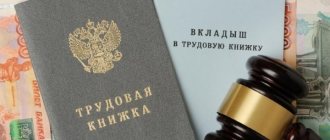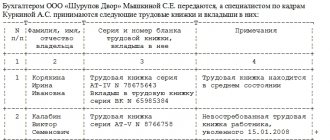Working pensioners in Russia in 2021 have the right to receive tax, labor and other benefits. Let’s look at exactly what social privileges people of retirement age are entitled to today.
Starting from 2021, working pensioners will not have their insurance pension indexed. However, this does not mean that they are deprived of all the benefits that are due to persons of retirement age.
They are exempt from paying tax on an apartment or house, as well as on 6 acres. These preferences apply to everyone who receives a pension, regardless of employment.
But working pensioners also have special benefits. For example, they can receive property deductions for expenses when purchasing a home. At work, they can take leave at any time, albeit without pay. In addition, upon dismissal, pensioners are not required to work the required two weeks in such cases.
Exemption from real estate tax
Pensioners do not pay property tax, but only for one piece of real estate of a certain type.
Their list is strictly defined in the Tax Code (clause 4 of Article 407 of the Tax Code of the Russian Federation):
- apartment, share in an apartment, room;
- residential building or part thereof;
- garage or parking place;
- premises for workshops, ateliers, studios;
- outbuilding with an area of no more than 50 square meters.
The benefit is provided for one object of each type. The main thing is that it is not used in business activities.
Examples
- A pensioner owns two apartments. The tax is paid only on one of them at your own choice (Clause 7, Article 407 of the Tax Code of the Russian Federation).
- A pensioner owns an apartment and a house. No tax is paid at all.
- A pensioner has a house and an apartment that he rents out. Tax is paid only on the apartment.
Exemption from land tax on 6 acres
Pensioners, including working people, have the right not to pay land tax on 6 acres
. It is charged only for an area exceeding this size. The benefit is provided only for one plot, which is owned or held for life.
Compensation for expenses when purchasing real estate
A working pensioner has the right to receive a property deduction for expenses on the acquisition or construction of real estate
(Clause 10, Article 220 of the Tax Code of the Russian Federation).
The deduction is provided for 3 tax periods preceding the period in which the carryover balance of property deductions was formed.
The following expenses can be refunded:
- Payment of mortgage interest. There is a limit on the amount of property tax deduction of 3 million rubles (clause 4, article 220 of the Tax Code of the Russian Federation).
- Part of the cost of purchasing or building real estate. There is a limit on the amount of property tax deduction of 2 million rubles (clause 3, article 220 of the Tax Code of the Russian Federation).
To receive a deduction, you need to submit an application to the Tax Inspectorate at your place of residence.
Regional privileges
At the level of individual districts, municipal authorities can establish their own types of benefits for the population. This allows us to maintain a decent standard of living for citizens in each region.
In the Moscow region, the following additional benefits are provided for working pensioners:
- Exemption from payment for garbage removal;
- Reduced prices for utility bills;
- Partial compensation of funds spent on landline telephone payments.
Toll exemption is regulated by district authorities.
Decision-making by municipal authorities depends on the amount of available funds in the city budget. In some districts, in addition to ground public transport, discounted travel is also provided in the metro.
The main document that exempts elderly people from paying travel fees is a pensioner’s certificate.
As an example, in the capital and St. Petersburg, city authorities suspended preferential travel on certain types of transport. To clarify the full list of types of transport that can be used by free working pensioners in a particular district, contact your local legislative authorities.
Certain categories of pensioners can receive a fifty percent discount on electricity for water supply.
The discount does not apply specifically to working pensioners, but it can be received by veterans of labor activity, certain groups of incapacitated citizens, and liquidators of the Chernobyl nuclear power plant.
Transport tax benefits for pensioners
Transport tax is regional and is regulated by Ch. 28 of the Tax Code of the Russian Federation. The rates, as well as benefits for this tax, are enshrined in the legislation of each region, and therefore differ from each other. In some areas, pensioners may be provided with benefits, in others - not.
For example, in the Moscow region there are no transport tax benefits for old-age pensioners. But there are disabled people of groups I and II who do not pay it in full, and group III, among whom there may be workers, pay only 50% of the amount. But no more than one vehicle at a time.
And in the Krasnodar Territory, pensioners aged 55 years (women) and 60 years old (men) pay 50% of the amount of transport tax on passenger cars with an engine power of up to 150 l/s.
You can find out what transport tax benefits for pensioners are available in your region at your local Federal Tax Service office.
Leave without pay
Working pensioners who receive an old-age insurance pension have the right to go on leave at any time without pay.
(Article 128 of the Labor Code of the Russian Federation). But only for a certain period:
- up to 14 calendar days per year - for working old-age pensioners;
- up to 60 calendar days per year for working disabled pensioners.
If you need leave for a longer period, then this should be discussed with your superiors.
To receive this benefit, simply submit an application to the HR department.
Rights of working pensioners and facts
Russian legislation distinguishes three categories of pensioners: old-age (age) pensioners; military pensioners; disabled people receiving a pension.
The right to an old-age retirement pension, according to Art. 7 of the Federal Law of December 17, 2001 “On Labor Pensions in the Russian Federation”, are available to men who have reached the age of 60 years, and women who have reached the age of 55 years.
Citizens who have reached retirement age can apply for a pension at any time, without any time limit, to the territorial body of the Russian Pension Fund at their place of residence.
From July 1, 2012, citizens have the right to apply for assignment, recalculation of the size of a labor pension, transfer from one pension to another, payment or delivery of a labor pension through an electronic document transmitted via the Internet.
If a citizen who has reached retirement age and received a pension continues to work, then the payment of an old-age labor pension to him is made without any restrictions (Article 18 of the federal law “On Labor Pensions in the Russian Federation”).
Reaching retirement age does not automatically mean leaving your job.
At the initiative of the employer, a pensioner, like any other employee, can be dismissed only on the general grounds provided for in Article 77 of the Labor Code of the Russian Federation. These include: agreement of the parties, expiration of the employment contract, liquidation of the organization, reduction in the number or staff of employees, absenteeism, appearing at work in a state of intoxication, and others.
If the employee continues to work, at the initiative of the employer it is possible to transfer him, with consent, to another position.
If an employee who has reached retirement age does not want to continue working, then he has the right to terminate the employment contract on his own initiative in connection with retirement (see Article 77 for the procedure provided for in Article 80 of the Labor Code of the Russian Federation).
At the same time, the employer does not have the right to demand that the employee notify him of his dismissal two weeks in advance if it is indicated that the desire to quit is caused by retirement. If the employee does not indicate this, then the dismissal in this case will not be considered a dismissal due to retirement, and he must notify of his desire two weeks in advance.
An old-age pensioner has the right to get a job. According to Art. 3 of the Labor Code of the Russian Federation, everyone has equal opportunities to exercise the right to work. No one can be limited in labor rights and freedoms or receive any advantages due to age.
In general, the rules for employing age pensioners are similar to the rules applied to ordinary employees. However, the law provides for two restrictions related to the age of the employee. For civil servants, the age limit for civil service is 60 years, with a possible extension to 65 years (Article 25.1 of the federal law of July 27, 2004 “On the State Civil Service of the Russian Federation,” as amended on November 29, 2010).
The positions of rector, vice-rectors, and heads of branches (institutes) in state and municipal higher educational institutions are filled by persons under the age of 65 (Article 332 of the Labor Code of the Russian Federation).
An employer can conclude with a pensioner:
employment contract for an indefinite period;
fixed-term employment contract (including a contract for a period of up to two months);
a civil law agreement (for example, a contract or paid services). When concluding such an agreement with a pensioner, the employer must warn him that vacation and sick leave will not be paid in this case.
A pensioner can work part-time in an organization.
An elderly employee candidate is not required to present a pension certificate.
When hiring, by agreement of the parties, a probationary period may be established, since the list of persons for whom it is not established does not include pensioners (Article 70 of the Labor Code of the Russian Federation).
The length of a pensioner’s daily work shift has no special features compared to other workers. Working pensioners are not among the persons for whom the employer is obliged to establish a part-time or part-time work week (Article 93 of the Labor Code of the Russian Federation).
But this is possible at the request of the pensioner. The Labor Code of the Russian Federation does not limit working pensioners’ right to work at night; they are allowed to work overtime on a general basis, as well as work on weekends and holidays.
All pensioners working in an organization under an employment contract have the right to annual leave of 28 calendar days (Article 115 of the Labor Code of the Russian Federation).
If the employee is an external part-time worker, he is also entitled to annual paid leave.
A working pensioner has the right to receive leave without pay for up to 14 calendar days a year (Article 128 of the Labor Code of the Russian Federation).
Moreover, this leave is provided regardless of the type of employment contract concluded with the pensioner.
Benefits for pensioners
Tax benefits are provided for pensioners. They are exempt from paying taxes on buildings, premises and structures. The number of objects owned by a pensioner does not matter (Article 4 of the Law of the Russian Federation of December 9, 1991 “On taxes on property of individuals”).
For non-working pensioners, from January 1, 2010, in order to bring their material support up to the minimum subsistence level for a pensioner established in a constituent entity of the Russian Federation, social supplements to pensions are provided.
They are established for all non-working pensioners if the total amount of their material support does not reach the pensioner’s subsistence level established in the constituent entity of the Russian Federation.
If the cost of living for a pensioner, established in the subject of the Russian Federation in which the pensioner lives, does not reach the cost of living for a pensioner in the Russian Federation as a whole, then the territorial bodies of the Pension Fund of the Russian Federation will establish a federal social supplement to the pension for the pensioner.
If the cost of living of a pensioner in a subject exceeds the cost of living of a pensioner in the Russian Federation as a whole, then a regional social supplement to the pension will be established for the pensioner by the authorized executive body of the subject of the Russian Federation (Article 12.1 of the Federal Law of July 17, 1999 “On State Social Assistance”).
In Moscow, the total amount of pensions and additional payments must be no lower than the city social standard - 12 thousand rubles (valid from January 1, 2012).
To apply for additional payments and compensation for your pension, you need to submit an application to the department of social protection of the population of your area.
Upon employment, the social supplement is removed.
For pensioners, there are additional social support measures that are financed by regional budgets.
Pensioners living in Moscow (not belonging to other preferential categories) have the right:
1) free travel on public transport (except for taxis and minibuses);
2) for free production and repair of dentures (except for the costs of paying for the cost of precious metals and metal-ceramics);
Non-working Moscow pensioners have the right to free sanatorium and resort treatment through social security authorities, and reimbursement of long-distance railway travel expenses to the place of treatment using vouchers received through social security authorities.
Single pensioners and families consisting only of pensioners, women over 55 years old and men over 60 years old, in addition to the listed benefits, are provided with a monthly monetary compensation for paying for local telephone services to telephone network subscribers - 230 rubles; and they are also exempt from paying for the removal of solid household waste.
If the pensioner is a labor veteran, then he has the right to additional benefits.
According to Federal Law No. 122 of August 22, 2004 (on the redistribution of powers between the federal center and the regions), labor veterans are classified as regional beneficiaries.
The circle of persons who are labor veterans is clearly defined by Article 7 of the Federal Law “On Veterans,” and the procedure and conditions for conferring the title “Labor Veteran” are assigned to each subject of the Russian Federation independently. In the capital, it is prescribed in the decree of the Moscow government of June 27, 2006 “On awarding the title “Veteran of Labor.”
Article 7 of the Law “On Veterans” states that labor veterans are persons:
having a Labor Veteran certificate;
awarded with orders or medals, or awarded honorary titles of the USSR or Russia, or awarded departmental insignia in labor and having the length of service necessary to grant an old-age or long-service pension;
persons who began working as a minor during the Great Patriotic War and have a work experience of at least 40 years for men and 35 years for women.
Benefits and social protection measures for labor veterans are approved by the regions themselves. These are, as a rule, discounts or subsidies for housing and utilities (50% of the payment within the social norm for the area is reimbursed; everything in excess of the norm is paid at a rate of 100%). This could be free (or discounted) travel on public transport. (In some regions, for example, in Moscow, there are no restrictions; moreover, veterans use electric trains for free within the Moscow region. In other cities, discount passes for a fixed number of trips may apply).
The right to dismissal without working 2 weeks
As you know, when you quit your job, your bosses may force you to work for 2 weeks after submitting your application. Retirees can resign at any time.
After retirement from old age, working citizens have the right to apply for dismissal at any time without working 2 weeks
(Article 80 of the Labor Code of the Russian Federation).
The reason for dismissal must be stated in the application as “due to retirement.” You can also attach a copy of the pension award document.
The last working day in this case is considered to be the date specified in the application. This means that you can receive dismissal either on the day you submit your application or later (paragraph 3 of Article 80 of the Labor Code of the Russian Federation).
Is it profitable to work in retirement?
Receiving both a pension and salary at the same time is much more profitable and, of course, significantly increases the financial security of a pensioner. In addition, by continuing to increase your length of service upon retirement, you can benefit for yourself, since insurance premiums and the amount of pension savings also increase, which means the payment itself also increases. In this regard, annual recalculation of pension payments is carried out.
However, in this case, the working pensioner will not be affected by the annual indexation of the fixed payment and the cost of the IPC, since from January 1, 2021, the increase in pensions was canceled (in accordance with Article 26.1 of the Law “On Insurance Pensions”). But the state promises to take into account all amounts of indexation after termination of employment.
There is another opportunity to increase your financial security upon retirement - this is to refuse to assign it after receiving the right to it and continue to work, thus the pension will increase by the legally established increasing factors.
Annual pension recalculation on August 1
Pension recalculation is an increase in the amount of payments in connection with previously unaccounted for insurance contributions on an individual personal account or in other cases (established for disabled people and citizens over 80 years of age).
In accordance with the formula given in Article 18 of Law No. 400-FZ dated December 28, 2013 “On Insurance Pensions,” the recalculation is carried out as follows:
SP = SPu + (IPK x SPK),
Where:
- SP - the amount of the insurance pension after recalculation;
- SPu - the established amount of the insurance pension as of July 31 of the year when the recalculation is carried out;
- IPC - the sum of points as of January 1 of the year when the recalculation is carried out, based on the amount of insurance contributions not taken into account when assigning;
- SPK - the cost of one point on the start date of recalculation.
Recalculation of pensions in August is carried out based on insurance payments for the previous year in points. However, the maximum increase is 3 points , multiplied by the cost of one point in the year of the recalculation. Thus, even with high wages, the increase in 2021 will occur no more than 279 rubles .
Increasing the amount of funded pension
In Article 8 of Law No. 424-FZ dated December 28, 2013 “On funded pensions”, when forming a funded pension after investing savings, and subsequent adjustments:
NP = NPu + PNk / T,
Where:
- NP - the amount of funded pension;
- NPu - the established amount of the funded pension as of July 31 of the year of adjustment;
- Pnk - the amount of accumulated funds in the personal account as of July 1 of the year of adjustment;
- T is the time of the expected payment period (in months) as of July 31 of the year of adjustment (in 2021 - 258 months).
In 2015, in connection with the transition to a distribution pension system, the formation of a funded pension was suspended , therefore, contributions to it were not accrued. Since the freezing of the funded pension has been extended until 2022, an increase in its size due to insurance contributions is not expected .
Cancellation of pension indexation from 2021
The amount of the insurance pension is indexed annually on February 1 or January, however, from 2021, increases are not provided for all categories of citizens.
Indexation of pensions for working pensioners was canceled in 2016, due to the economic crisis and large expenses of the Pension Fund budget.
This position is explained by the fact that working citizens receive additional money through work and pension payments are no longer their only source of income. In addition, experts note that this measure will significantly reduce the costs of the Pension Fund. However, upon termination of employment, the pension amount will be revised taking into account indexation.
Will pension payments to working pensioners be cancelled?
At the moment, canceling pension payments to a working pensioner is not legal , but back in 2015 there was a proposal to limit pension payments to citizens whose annual income exceeds 1 million rubles ; A bill “On the specifics of paying pensions to working pensioners” was created. According to preliminary government estimates, this could contribute to a reduction in budget expenditures by about 145 million rubles over three years.
This innovation did not find support in 2021, however, it is possible that in the future other measures will be taken to reduce or completely cancel pension payments to working recipients. It is already proposed to reconsider the above-mentioned bill to completely abolish security or, as the Ministry of Finance proposed, to abolish at least a fixed payment to the insurance pension.
However, at the moment it is known for sure that such decisions will not be made in the near future.
The right to days off for medical examination
In Russia there is a program for free medical examinations - examinations by doctors. To undergo mandatory medical examination, employees receiving old-age or long-service pensions are given additional days off - 2 days annually, while maintaining their place of work (position) and average earnings.
To get a day off, you must submit an application to management in any form, but indicating the date of release from work. By the way, the employer can refuse by setting another date.
After going to the doctor, you must present a certificate. Otherwise, the employer has the right to count these days as absenteeism.
Recalculation of insurance pensions
Recalculation of the insurance pension amount is an adjustment of the payment amount through an increase in the IPC (individual pension coefficient) and (or) a fixed payment. Since this is not indexation, let’s figure out what awaits working pensioners in 2021 in this area.
In what cases is recalculation made:
- if the pensioner has additional income from which insurance contributions to the Pension Fund are paid;
- in connection with new information about labor activity;
- in connection with innovations in laws;
- due to other circumstances.
Recalculation is carried out:
- without submitting an application from the pensioner to the Pension Fund (automatic, non-application recalculation);
- according to an application to the Pension Fund.
Pension recalculation formula
It is impossible to say anything new about pensions for working pensioners in 2021, but the Pension Fund of the Russian Federation promises that from August 1, all employed Russians over 55 (60) years old will have their payments automatically recalculated taking into account the amounts transferred for pension insurance.
Payments to non-working pensioners will also be recalculated if circumstances arise that affect the size of the individual pension coefficient (according to information received by the Pension Fund).
Recalculation formula for old-age insurance pension:
SPst = SPstp + (IPKi × SPK),
Where:
- SPst - the amount of payment after recalculation;
- SPstp - the amount of payment established as of July 31;
- IPKi - individual pension coefficient at the beginning of the year, not taken into account in the previous recalculation;
- SPK - the cost of one pension coefficient (as of 01/01/2020 SPK = 93 rubles).
Undeclared recalculation of insurance pensions
The annual automatic recalculation of insurance pension payments will occur on August 1.
Based on clause 4 of Art. 18 400-ФЗ dated December 28, 2013, with an undeclared recalculation, the maximum value of IPi (not taken into account at the time of recalculation) does not exceed:
- 3.0 - for pensioners who do not have pension savings;
- 1.875 - for pensioners who are forming pension savings.
The annual automatic recalculation of the insurance part of the pension for working pensioners in 2021 will take place on August 1, subject to deductions of insurance contributions to the Pension Fund, which were not previously taken into account:
- during the previous recalculation;
- when assigning an insurance benefit (for old age or disability);
- when assigning an insurance benefit in the event of the loss of a breadwinner (adjusted once: in August of the year following the year of its appointment);
- when transferring to another type of insurance benefit (old age or disability).
Automatic (non-declaration) recalculation of the fixed payment amount is carried out:
- when a pensioner reaches 80 years of age;
- disabled people of group I.
For them, the fixed payment is doubled.
Recalculation of insurance pensions upon application
In a number of circumstances, recalculation is made upon a personal application to the Pension Fund. They increase both the IPC (individual pension coefficient) and the fixed payment.
What circumstances give the right to an additional recalculation? Non-insurance periods (for which insurance premiums were not received by the Pension Fund), which provide grounds for increasing the IPC, are presented in Art. 15 and 18 Federal Law-400 dated December 28, 2013:
- completion of military service upon conscription;
- receiving social benefits for temporary disability;
- care for each child up to one and a half years old (but not more than six years in total);
- receiving unemployment benefits;
- caring for a disabled person of group I, a disabled child or an elderly person over 80 years of age;
- residence of military spouses in areas where there was no opportunity to find a job (but not more than five years in total);
- residence abroad of spouses of civil service employees (but not more than five years in total);
- operational-search activities;
- detention and serving sentences of persons unjustifiably prosecuted, repressed and subsequently rehabilitated;
- a period of temporary suspension from work of a person who was unjustifiably prosecuted and later rehabilitated.
IMPORTANT! Such periods are added to the length of service if they were preceded and (or) followed by working periods for which deductions were made to the Pension Fund (Article 11, No. 144-FZ of 08/12/1995).
The fixed payment increases in the following cases (Articles 15 and 17 of Federal Law No. 400-FZ of December 28, 2013):
- increasing the number of disabled dependent family members (no more than three dependents are taken into account). An increased fixed payment is established for old-age and disability insurance benefits;
- living in the Far North. The fixed payment increases taking into account the regional coefficient for the entire period of residence;
- achieving the required work experience in the Far North and (or) insurance experience. The fixed payment to the insurance benefit (for old age or disability) increases;
- changes in the category of survivors' insurance benefit recipients.
IMPORTANT! The law provides for recalculation in the event of an increase in the IPC and (or) an increase in the fixed payment (Articles 17 and 18 No. 400-FZ of December 28, 2013).
Adjustment of funded pension
Recalculation of pension savings is carried out on August 1 annually without submitting an application. There is no indexing.
The adjustment occurs based on unaccounted receipts when it was assigned or a previous adjustment (Article 8 of Law No. 424-FZ of December 28, 2013):
- from insurance premiums;
- from additional voluntary insurance contributions;
- from contributions for co-financing and the result of their investment;
- from maternity capital funds and the result of its investment.
The adjustment is made according to the formula:
NP = NPk + PNk / T,
Where:
- NP - payment amount;
- NPK - the established amount of payment as of July 31 of the year of adjustment;
- PNk - the amount of pension savings as of July 1;
- T is the number of months of the expected payment period as of July 31.
The amount of the funded pension is adjusted based on the results of investing funds from the payment reserve in accordance with Art. 12 of the Federal Law “On the procedure for financing payments from pension savings” dated November 30, 2011 No. 360-FZ.








